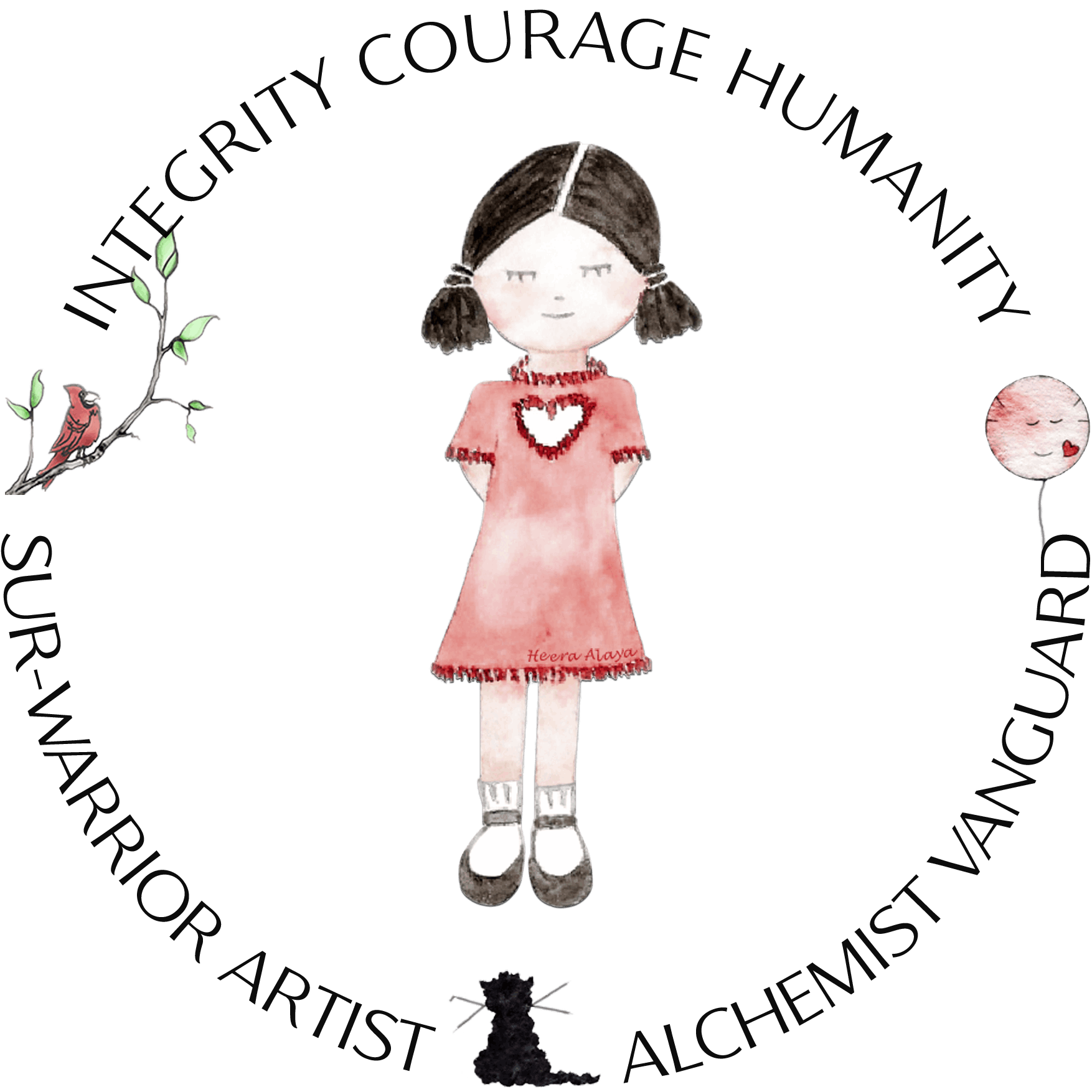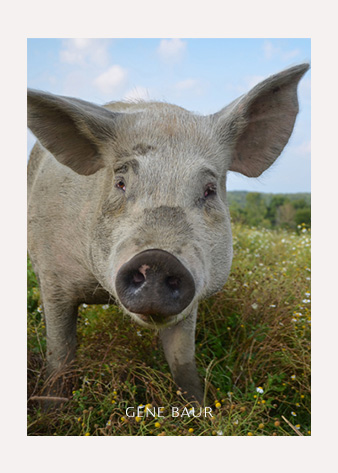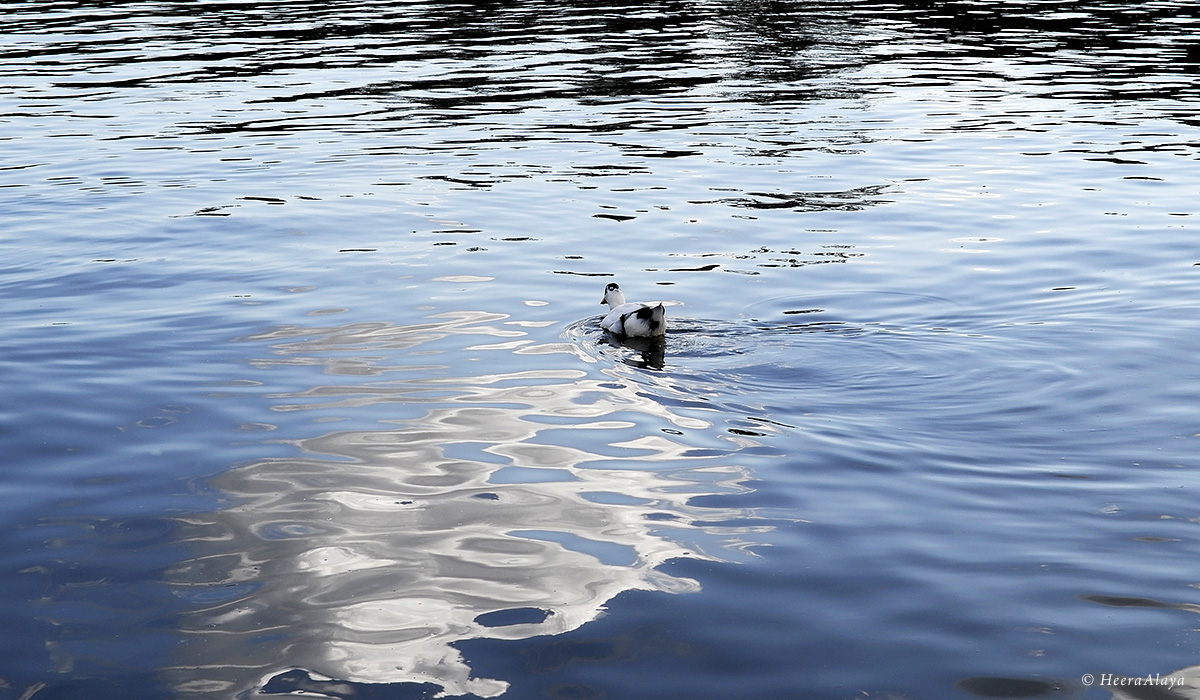
SLOW
IKAT
authenticity
By Heera Alaya
January 1st, 2018
“First, the flock will target you for looking different; next, they will tease you for not fitting in; and finally, they will punish you for your unique paddling that creates intriguing designs. You must change to fit in.” These well-intended sentiments should have prompted me to alter myself. Instead, I remained a naïve hybrid Mallard oblivious to herd mentality.
Where trust in yourself is essential, the fact is everyday life operates on multiple layers of faith. So it’s natural that when flock members approach me and show interest in moving independently, I trust them and share stories of exploring, thinking and learning.
One such incident involved a sincere-looking duck. “What’s your name?” I asked, hoping it would be different this time. With a deadpan expression, the duck echoed: “We,” confirming he wasn’t going to tell me anything new: “We secretly watch you, and the flock chief says you are a strange bird—you behave differently and venture to dangerous places. But there are also whispers that the distant bright blue waters are interesting. Can you take “us” with you, please?” Wanting to support (yet another) We’s attempt to become an individual, I got straight to the point: “You will never know your potential if you remain clinging to the crowd. Dunk down and re-position yourself.” We appeared increasingly nervous: “But it’s “our culture” to….” he trailed, unable to fathom breaking free of the flock.
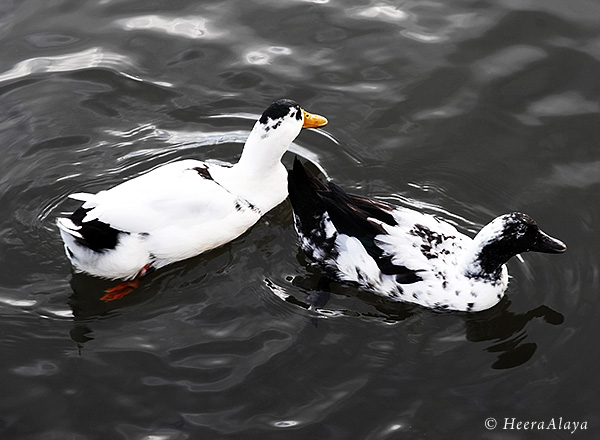
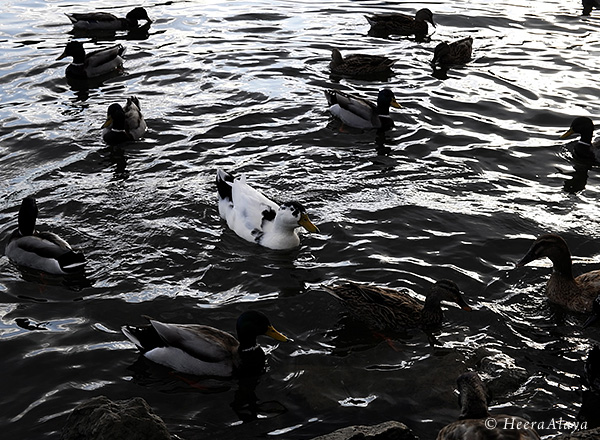
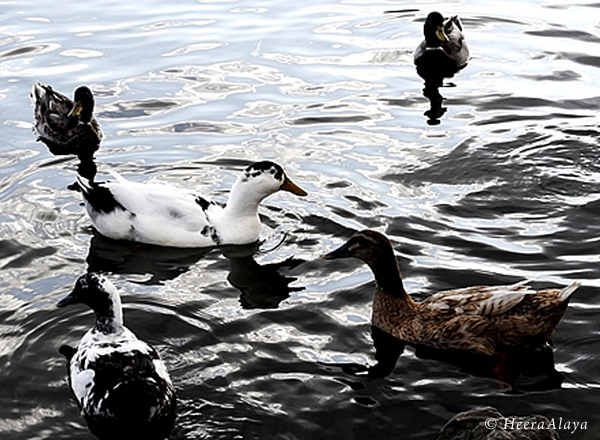
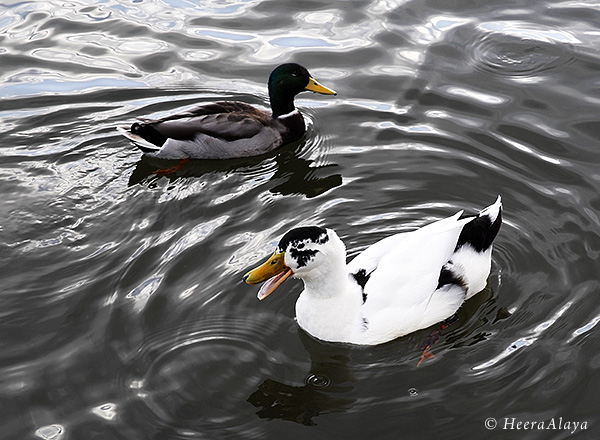
Enthused about investing my trust in We and helping him transition to an unfamiliar territory, I patiently answered the barrage of “buts and ifs” fired at me, going hoarse in the bargain. My effort to lift We kept us paddling in the same circle. So emotionally fatigued was I in my efforts to motivate We I didn’t realise I was trapped in a web of “We-flock.”
The “We’s” prodded me with questions. In good faith, I continued explaining the benefits of finding their voice and expressing their emotions while stressing movement and courage. My efforts were met with cackles and labels (ranging from weirdo to loser). They even made fun of my name: “I the cat, eew-cat, I kit”. The “We-flock” attitude bothered me, but what disturbed me was how they functioned as a flock—with non-stop chatter, bickering and fighting, engaging in trivialities and populating negativity.
The timely intervention by my friends Zulu and Eda saved me from drowning in the shallow stagnancy. Zulu and Eda had observed the entire episode from a distance but wanted me to get caught, again, in a whirlpool of mediocrity to learn my lesson finally—don’t fall into a trap and attempt to motivate those who want to maintain their status quo. Zulu was right in previously educating me: “Sloth of the mind sedates with a lifetime guarantee of stagnancy; discomfort pushes you to purpose. Ikat, keep paddling.”
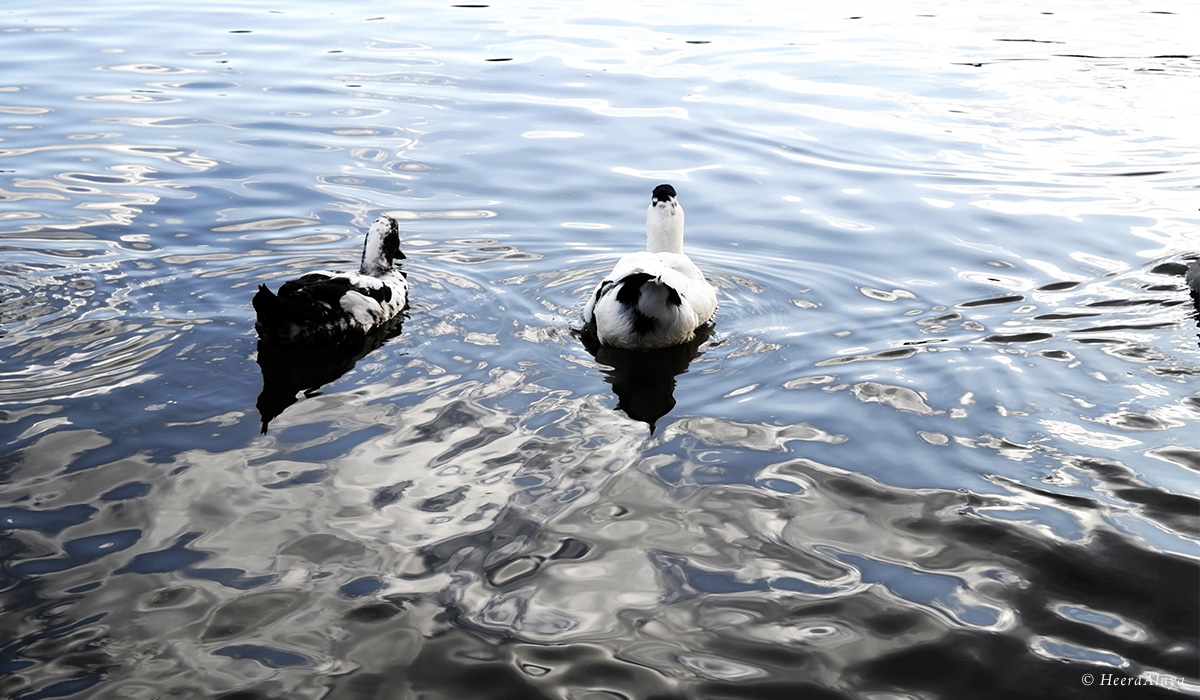
With Eda following close, we paddled towards distant blue waters. The energy emitted by my friends, Zulu and Eda, along with the coolness of the water and openness of nature, soothed my choking soul.
In this self-reliant thinking space, I realised that the “We’s” were distributing and redistributing fear-packed messages, ensuring they exist in a cortisol bubble! It became evident they wouldn’t be receptive to a “dopamine Dame” like me—the dopamine would force them to feel alive. Instead, to maintain the status quo, the “We’s” attempt to beat you down with their dead-end talk and strategically place obstacles while systematically changing the filters of your life, taking it from vivid cool to dramatic dark!
Reading my mind, my precious warrior, Zulu, offered: “The emotionally clogged tribe will label you in unsavoury ways. It’s not about you—it’s about anyone who courts thinking and dares to evolve—the ignorant flock is unequipped to handle anything that doesn’t assure them of stagnancy. If you want to please the herd, you might as well take permanent residency with the flock. But if you wish to grow and get in tune with your intrinsic purpose, you must experience diversity and exercise the power of one.”


Our peaceful swim, away from the chorus of resentful and fear-filled cackling, was disrupted by energetic howling—a few of the brave flock had broken free and were encouraging others to keep the faith in crossing the threshold.
Beyond the brave few, the majority of the flock, especially the physically big and outwardly strong, furiously paddled towards darkness in panic, generating a copious amount of cortisol. The flock’s existence and identity lie in the shallow dark areas near the shore, in the safe company of the aquatic weeds and submerged plants that ensure well-anchored invisible shackles for their stagnancy. How can you reach your potential in a limited environment?
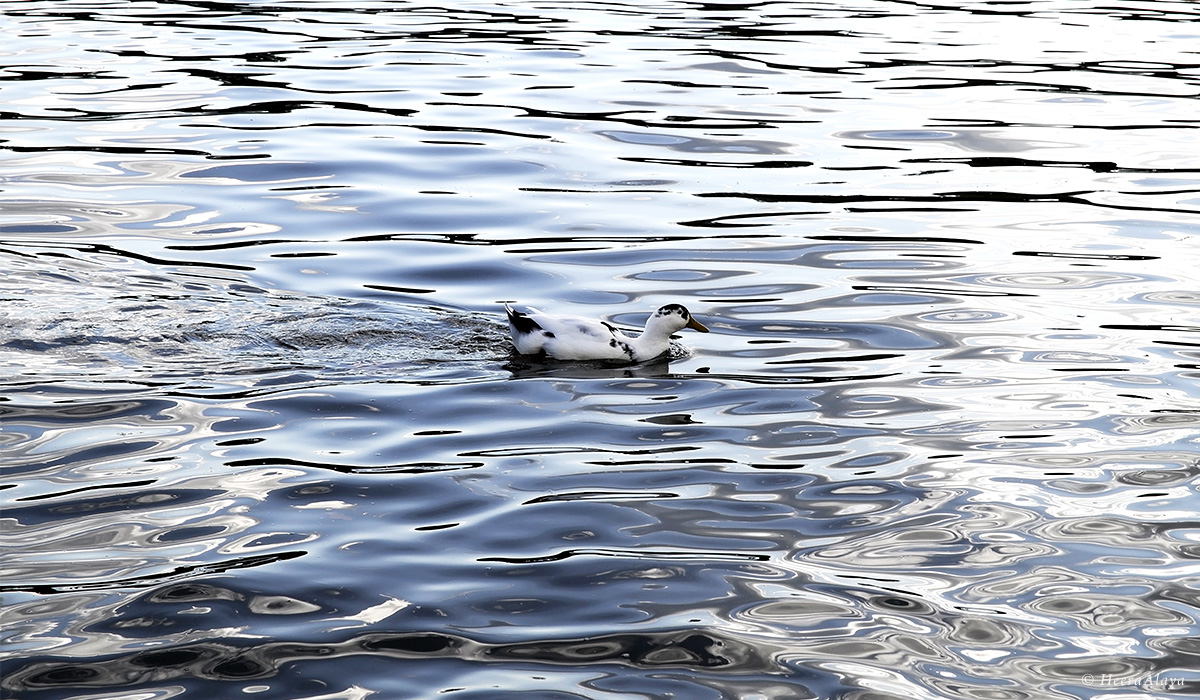
Paddling into unknown terrains can at once be discomforting and stimulating, but this said, thinking and navigating life independently develops courage and conviction. Where your decision-making leads you to (copious) failures, making the journey a personal success, the cumulative experiences contribute to resources you can draw in life.
As you continuously move, remaining anchored to your merit, try to incorporate the Japanese concept of “Ma”—this space around you will facilitate an appreciation for solitude and encourage you to evolve and create artistically.
Being a “strange bird” is a positive—authenticity and knowing your power catapults you further. Had the “We-flock” invested in themselves, instead of existing superficially, they would have known the meaning of Ikat and recognised that Ikat symbolises prestige and power.
